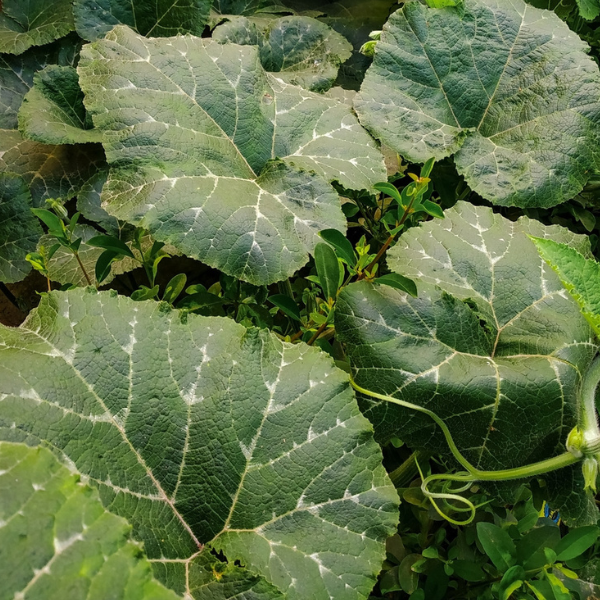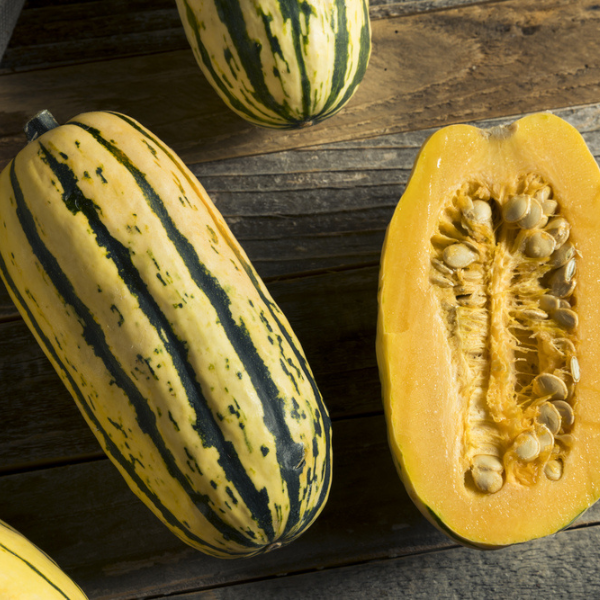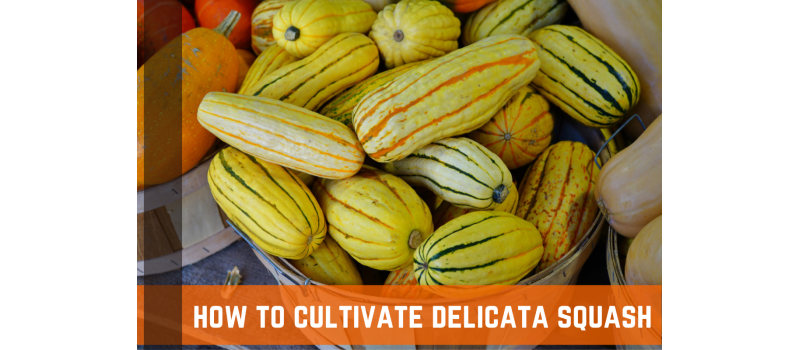Delicata squash, known for its sweet, nutty flavor and tender edible skin, is a favorite among gardeners and cooks alike. This versatile winter squash is easy to grow, even for beginners, and it thrives in a variety of climates. If you’re looking to add this delicious and nutritious vegetable to your garden, follow this step-by-step guide to learn everything you need to know about growing delicata squash.

What is Delicata Squash?
Delicata squash, sometimes called "sweet potato squash" due to its flavor, belongs to the same family as pumpkins, zucchinis, and other winter squashes. It has a cylindrical shape, cream-colored skin with green stripes, and pale orange flesh inside. Unlike many other winter squashes, delicata squash has a thin skin that softens during cooking, making it entirely edible without peeling.
This squash is a nutrient powerhouse, loaded with vitamins A, C, and potassium. Its rich flavor makes it a perfect addition to soups, salads, or roasted vegetable dishes. Now that we know why delicata squash is worth growing, let’s explore the steps to grow it successfully.

Choosing the Right Growing Conditions
Delicata squash thrives in warm, sunny conditions, and requires full sun exposure for at least six hours a day. It's a warm-season crop, which means it needs temperatures between 70°F and 85°F to grow properly.
The ideal soil for growing delicata squash is well-draining, loamy, and rich in organic matter. The pH of the soil should be slightly acidic to neutral, ranging from 6.0 to 7.0. You can improve your soil quality by adding compost or well-rotted manure to provide the squash plants with the nutrients they need to thrive.
Planting Delicata Squash Seeds
To plant delicata squash seeds, follow these steps:
Direct Sowing: If you're planting seeds directly into the ground, sow them 1 inch deep, spaced about 3 feet apart in rows. The vines will spread out, so make sure to give each plant plenty of space. If you're planting in hills, which is a traditional method for squash, plant three to four seeds per hill and thin them to the strongest seedling once they've sprouted.
Starting Indoors: If you're starting seeds indoors, plant them in small pots filled with seed-starting mix. Place them near a sunny window or under grow lights. Keep the soil moist but not waterlogged. After two to three weeks, they should be ready for transplanting.
Once your seeds have germinated, seedlings typically emerge within 7-10 days.
Caring for Delicata Squash Plants
Watering
Delicata squash needs consistent watering, especially during the flowering and fruit-setting stages. The plants prefer about 1-2 inches of water per week, depending on the weather. Water the plants deeply at the base, keeping the leaves dry to prevent fungal diseases like powdery mildew.
Mulching
Adding a layer of mulch around your delicata squash plants helps retain soil moisture, regulate temperature, and reduce weeds. Organic mulch, like straw or compost, is a great choice for delicata squash, as it also adds nutrients to the soil as it breaks down.
Fertilizing
Squash plants are heavy feeders, so they’ll benefit from regular feeding throughout the growing season. Before planting, mix a balanced, slow-release fertilizer into the soil or add compost. You can side-dress the plants with compost or a high-nitrogen fertilizer once they start to vine and again when the plants begin to flower.

Pest and Disease Control
Like all plants, delicata squash can be affected by pests and diseases. Here are the most common ones to watch out for:
Squash Bugs: These pests suck the sap from the plants, causing wilting and yellowing. Handpick squash bugs off the plants or use insecticidal soap.
Squash Vine Borers: These pests bore into the stems, causing the plant to wilt and die. You can protect your plants by wrapping the base of the stems with aluminum foil or using floating row covers to prevent the adult moths from laying eggs.
Powdery Mildew: This fungal disease appears as white powdery spots on the leaves. To prevent it, ensure good air circulation by spacing your plants properly and avoid overhead watering. If powdery mildew appears, use a fungicide or a homemade solution of water and baking soda.
Growing delicata squash is a rewarding experience for gardeners of all skill levels. By providing the right growing conditions, caring for the plants properly, and keeping an eye out for pests, you’ll be rewarded with a bountiful harvest of delicious, nutrient-rich squash. Whether you’re a seasoned gardener or just starting out, delicata squash is a great addition to your garden that will keep your kitchen stocked with tasty vegetables throughout the fall and winter.

